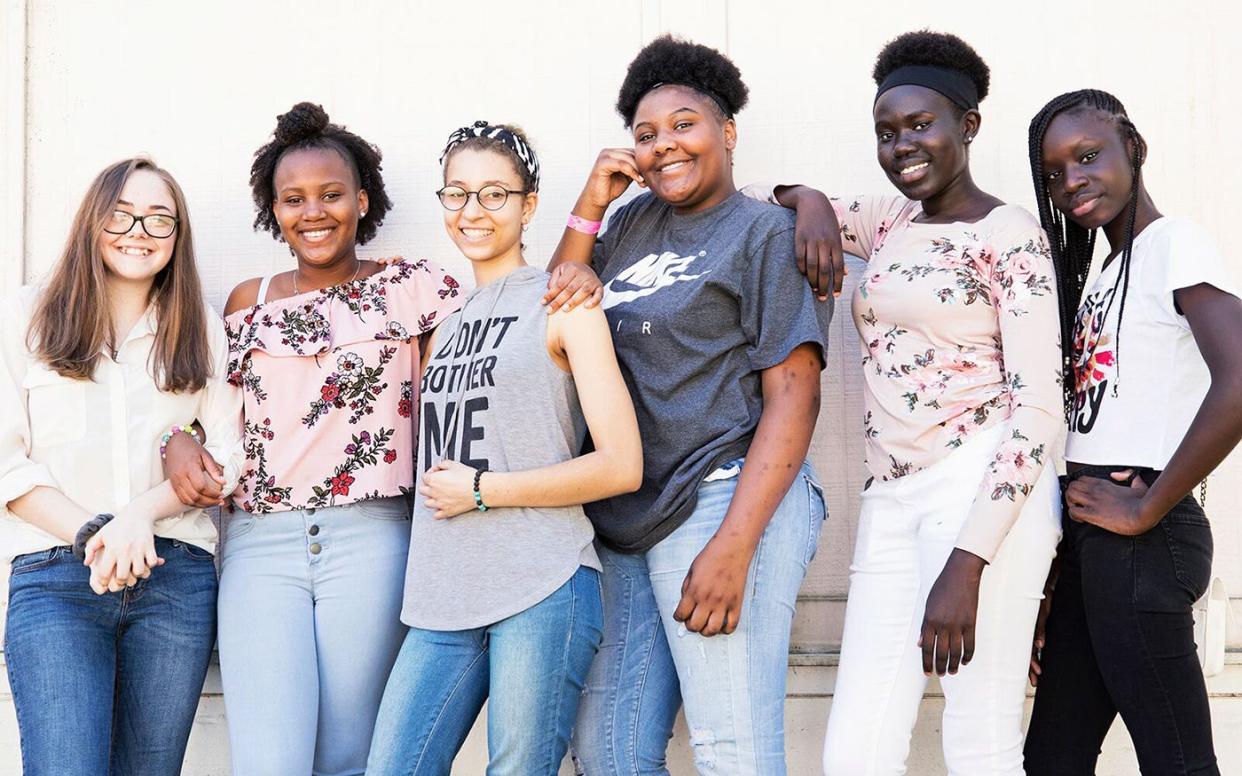'Blueprint' reveals girls in Florida are in crisis, 40,000 arrested in last 5 years

In the last five years about 40,000 girls younger than 17 have been arrested in Florida, two-thirds on non-felony charges.
The youngest was age 6.
But being arrested might have been just one of their many horrors, according to a new report issued Wednesday by Jacksonville's Delores Barr Weaver Policy Center.
In addition to involvement in the juvenile justice system, "alarming numbers of girls in Florida are experiencing sexual victimization, interpersonal violence, unaddressed mental health issues, homelessness," according to the report, which is published every five years.
Study: 'The level of hopelessness ... was striking' among at-risk girls in Northeast Florida, statewide
2020: Policy Center uncovers ‘crisis’ status of Florida girls
Editorial: The city's kids are in crisis
Justice for Girls Blueprint: The Way Forward for Florida revealed that most "girl-specific data trends in Florida showed insufficient or no progress" since they were measured in 2008.
"Our work is not done," said Vicki Basra, center president and CEO. "We have to stop this … We continue to fail our girls."
Girls treated more harshly than boys
Founded in 2012 and funded by philanthropist Weaver, the center was created as a national model in how to help at-risk girls before and after they get in trouble with the law.
A girl quoted in the blueprint report said, "Being a teen girl is not easy at all. We’ve been through a lot more than people think we have. We’ve experienced really bad things. We know things we shouldn’t. We want to share it’s not easy being us. Not easy being me."
The state has "made some progress" since 2008, including increased enforcement of human trafficking laws, trafficking prevention education in schools and programs for victims, Basra said. The number of girls being arrested also has dropped 66% and the number incarcerated dropped 67%, she said.
Still, trauma begats trauma.
One in three Florida girls report having had suicidal thoughts, one in five have been sexually assaulted or raped and one in eight feel unsafe in their neighborhoods.
Santeria Williams: Police make arrest in death of Ribault High senior found on banks of Northside river
14-year-old female getaway driver: 4 arrested in triple homicide at Jacksonville complex
'Sounding the alarm': Jacksonville research center finds Black girls receive unfair punishment
One in four have been referred to the juvenile justice system. Trauma often "paves the way" to the juvenile justice system, Basra said.
The 40,000 girls arrested in the last five years were "already in crisis," said Vanessa Gordon, the center's research and grant analyst. But many of them were further traumatized by what happened next: About 12,000 of them went to secure detention, 10,000 were put on juvenile probation and 1,400 were sent to residential lock-up. And Some ended up in an overburdened foster care system, she said.
Girls also are treated more harshly for less serious offenses than boys, according to the report. About 66% of girls are arrested for non-felonies, compared to 38% for boys; 40% of girls are locked up for non-felonies, compared to 18% for boys.

Black girls are particularly at risk for being pulled into the juvenile justice system. They make up 21%t of Florida girls ages 10 to 17, but account for 45% of arrests, 45% of incarcerations and 52% of transfers to adult court, according to the report.
Civil citations among recommendations
Roy Miller is president of the Tallahassee-based American Children's Campaign, a Weaver center partner. He commended the center for undertaking the "enormous responsibility" of advocating for girls.
Over the past decade, he said, the number of community-based services available to help girls has drastically declined. Those services ranged from counseling to halfway houses.
"Community needs are not being met. A predisposition to detention further aggravates the situation," he said. "Girls act out, for all the reasons noted, usually relating to some trauma in their lives."
In the report, the center offered "key solutions" that if implemented statewide could help stop the "revolving door of juvenile justice involvement for girls and young women." A "girl-centered approach" — an understanding of how girls’ exposure to trauma and violence impacts their behaviors — is critical.
• Ban arrests of children age 12 and younger, unless for violent offenses. The current limit is age 7.
Juvenile justice: Partnership for Child Health, Kids Hope Alliance takes over Duval County juvenile diversion
Civil citations: Jacksonville Sheriff refuses ICARE request for adult civil citations for minor criminal offenses
• Mandate that all counties implement a civil citation or alternative to arrest program. In 2020-21 nearly 4,000 girls had contact with law enforcement: All were eligible for a civil citation, but 41% were arrested, according to the report. "Justice should be equal for all," Miller said.
• Invest in a girl-centered, community-based "continuum of care" model. A 2021 juvenile justice statute mandated "effective treatment" for the physical, social and emotional needs of girls in the system. The treatment was to be "trauma-informed and gender-specific" but has not been implemented.
The report "not only shines the light on actions to be taken by policymakers … for ensuring the safety and future success of girls, but also engages the girls themselves," Basra said. "This is best accomplished by continuing reforms that shift Florida’s juvenile justice system to a healing and restorative model, one that truly sees girls for their potential, not present circumstances."
The blueprint report "gives life to their voices," Gordon said. Those voices, she said, are asking people to "listen, put ourselves in their shoes and not judge them."
Delores Barr Weaver Policy Center
To read the full report, go to seethegirl.org/blueprint2022. To donate or get more information about the center, go to seethegirl.org.
This article originally appeared on Florida Times-Union: Jacksonville's Delores Barr Weaver center reveals girls in crisis

